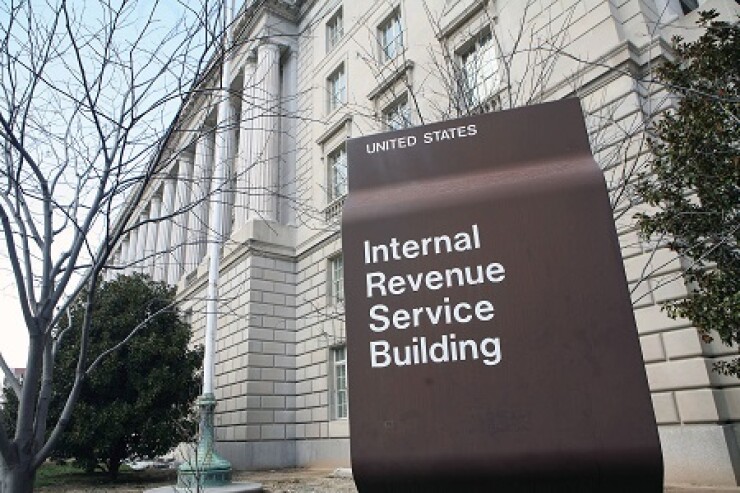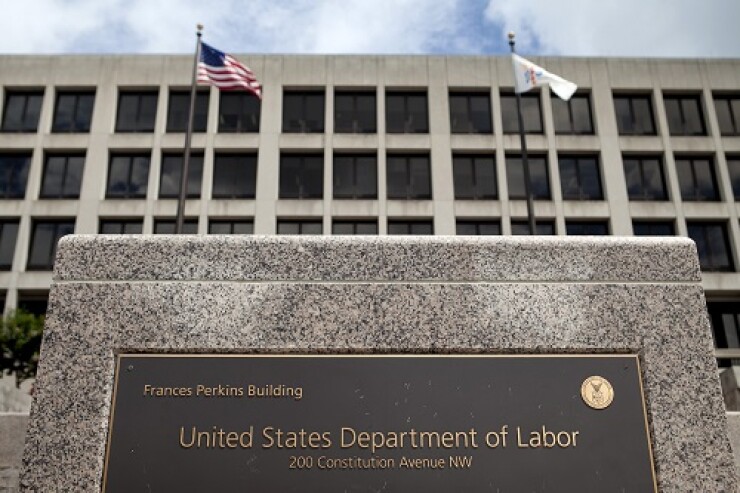In order for regulation to have impact, it must be enforced, including having a means for enforcement, so let’s review how the new fiduciary rule and best interest contract exemption requirements will be overseen.
For any fiduciary advice pertaining to ERISA plans, the Labor Department can continue to carry out enforcement as it has in the past; in addition, allegedly harmed participants have the right to sue in court (
For fiduciary advice pertaining to IRA accounts, the DoL cannot enforce the prohibited transaction rules directly; technically, the agency can write guidelines to define a fiduciary under both ERISA and the Internal Revenue Code (which governs IRA accounts), but the enforcement of those rules generally falls to the IRS. However, the IRS has not been active in enforcing fiduciary-prohibited transactions in retirement accounts.

As a result, the DoL has required those providing fiduciary investment advice recommendations to IRAs to sign a best interest contract – which creates the potential for an adviser (or at least, an institution) to be sued for failing to adhere to the contract as a fiduciary, even if the IRS won’t enforce the rule directly.

In other words, if advisers fail to follow their fiduciary obligations with respect to IRA accounts and rollovers, the DoL itself cannot force a proceeding, but the DoL did ensure that consumers have legal recourse by forcing institutions to leave the door open for a client’s attorney to sue.
In extending this requirement, the best interest contract explicitly requires that an institution cannot require consumers to fully surrender their rights to compensation for damages or require them to fully waive their rights to pursue action in court. Instead, while the rules do allow the contract to require that individual disputes go to the industry-standard mandatory arbitration, consumers retain the right to pursue a class-action lawsuit.
If an institution systematically fails to adhere to appropriate fiduciary policies and procedures, the institution faces a high likelihood of a class-action lawsuit in the future.
That means if an institution systematically fails to adhere to appropriate fiduciary policies and procedures, the institution faces a high likelihood of a class-action lawsuit in the future, for which the required disclosures will provide a roadmap to the plaintiff’s attorney to pursue.
The DoL retains the right to evaluate an institution’s policies and procedures, and
Best Interest Contract for Level-Fee Fiduciaries
In the world of fiduciary advice, it has long been recognized that earning level compensation that does not vary by the product being recommended is an effective way to mitigate many conflicts of interest. In fact,
Along these lines, the fiduciary rule includes an alternative way for advisers who receive level fees to qualify for the best interest contract exemption without actually being required to complete a full best interest contract by instead qualifying as a level-fee fiduciary. The concept was put forth in letters to regulators in response to the 2015 fiduciary proposal.
In the final rule, an adviser qualifies as a level-fee fiduciary “if the only fee or compensation received is a level fee that is disclosed in advance to the retirement investor.” The DoL states that level fees could be calculated as a level percentage of AUM or as a set fee that doesn’t vary at all with the particular investment (for example, a retainer fee).
An adviser would not need to already be an RIA receiving level AUM fees. The adviser could be a broker who receives level compensation via 12(b)-1 fees, or as pay for a fee-based wrap account. However, to be eligible for the level-fee fiduciary exception, an adviser – as well as the financial institution, its related parties and affiliates – must receive only that level fee, and not any other commissions or transaction-related compensation. Thus, adding 12(b)-1 fees on top of level compensation would be problematic, as would other types of revenue-sharing agreements -- disqualifying the engagement from eligibility for the level-fee fiduciary exemption and forcing the firm to follow and rely upon the whole best interest contract, instead.
For advisers and their institutions that do qualify for the level-fee exception, the firm is still required to provide a written statement of fiduciary status (which could be part of the client agreement), must still comply with the required standards of impartial conduct, and must still document the specific reason for a rollover transaction – that it was in the interest of the client (documenting the costs of the plan, the new costs of the adviser and his/her chosen investments of the IRA, differences in the level of services, such as whether it is investment-only or includes financial planning advice, etc.).
If these requirements are met, though, the firm does not have to comply with the full scope of completing the best interest contract agreement and the full extent of the disclosure requirements for the institution (since, presumably, there would be less in the way of material conflicts of interest to disclose for the level-fee fiduciary).
In the long run, it’s entirely possible that most (if not all) advisers will pursue becoming a level-fee fiduciary to avoid both the best interest contract agreement obligation and the associated requirements. In other words, similar to the rules for RIAs regarding custody, an adviser can have custody of client assets, but is subjected to significant additional scrutiny by doing so. In practice, most RIAs avoid custody to avoid the additional compliance requirements. The level-fee fiduciary safe harbor will likely have a similar impact over time.
Execution of the Best Interest Contract
In what was viewed as a significant concession to the industry, the actual execution of the best interest contract itself (for those who provide fiduciary investment advice and are not level-fee fiduciaries) was greatly expedited in the final rule.
While
Notably, the rule also stipulates that a best interest contract will generally be a contract between a client and the financial institution, not just the adviser. To some extent, this was done to accommodate firms that have multiple advisers serving a single client.
Notwithstanding the timing of when the contract must be signed, the rule also stipulates that all recommendations of a fiduciary adviser are subject to the best interest contract retroactively. That means even though the contract won’t be signed until the implementation phase with a client, it will cover all the advice recommendations leading up to that recommendation being implemented.
Grandfathering Provisions
Given that many advisers will be transitioning to fiduciary status for the first time – and thus becoming subject to the prohibited transaction rules and the requirement to obtain a prohibited transaction exemption — the DoL provided several grandfathering provisions to make it easier for those who have a large base of existing commission payments coming in.
Most importantly, the final rule specifically grandfathers ongoing commission payments for advice provided prior to the effective date of the new rule, which begins next April. Brokers will not be required to give up existing 12(b)-1 fees and other trailing commission payments.
In addition, any ongoing client contributions already committed to as part of a systematic plan also may continue, even if it triggers new or ongoing commissions, without being newly subjected to a best interest contract.
However, any new recommendations to an existing client, including advice to add to existing commission-based investments (which would trigger a new commission or other additional compensation), will require a new best interest contract once the new rules take effect. In addition, existing clients will ultimately need to be transitioned to new best interest contracts once the new rules take effect, which can be done with a negative consent procedure – namely, sending a letter to clients informing them of the new agreement and giving them the option to leave if they don’t want the new arrangement, but otherwise defaulting them into the new fiduciary engagement.
Of course, after the effective date, all new clients and advice will be subject to the new contract obligations.





